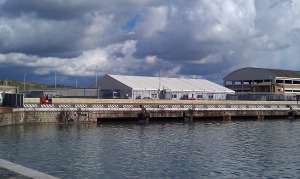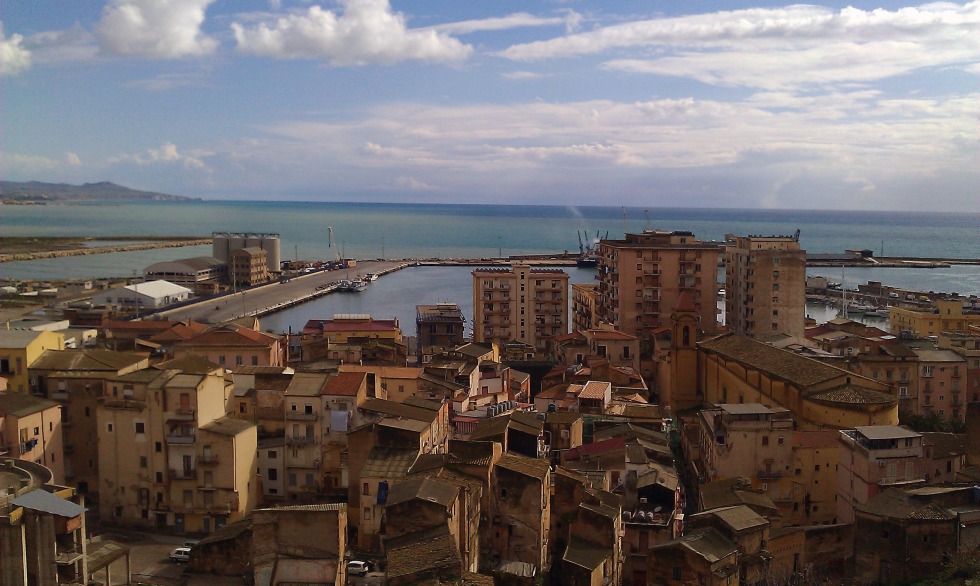A better life? The European Union’s other problem
Italy – part III
What is this post about? Read part I and II on Italy
Europe is El Dorado for clandestine migrants arriving from Africa. Many survive journeys spanning thousands of miles across the harshest terrain, sustained by the vision of a golden continent where there is freedom and work. But for those who step off the ferry in Sicily, just 145km from the continent they have left behind, how long does Europe, the gilded continent, retain its’ shine?
When Ghanaian migrant Samuel Quanson first arrived in Palermo, he slept outside a crowded refugee shelter. “I see my brown friends from Africa, Morocco … how they live – like refugees. Wow. The place [shelter] is doing a good thing but there is no space for people to sleep. So I slept outside. When it rained they gave me a plastic cover.
“I stood there crying and thinking, ‘what am I doing?’ I had a job, I had a nice place in Africa, my house, my car. From that to living like a refugee. It was sad. I cried a lot.”
***
Usually, if a migrant registers with local officials, the first place they sleep is in an immigration holding centre. These centres are prisons in all but name, and are dotted along the coast of Sicily. There are also several large centres inland near major airports and cities (ready for mass deportations).
I was told that the Tunisians I saw arriving in Lampedusa would be taken to a large holding centre in Porto Empedocle, a coastal town in Agrigento. After days of trying and failing to get permission to visit, I turned up on at the centre hoping to convince the guards to let me in or failing that, speak to some of the migrants through windows or in the yard.
The centre is a large, wide building with tiny windows surrounded by barbed wire, located next to a ferry port, with rows of grand yachts set against the brilliant turquoise of the Mediterranean. Smartly dressed Italians and ship workers drink espressos and eat miniature éclairs at nearby coffee bar. It is a hot day, but there are no inmates in the centre yard, only three large ferocious dogs patrolling the gates. 
Though the centres are shrouded in security and policed like prisons, the people detained in them are not yet considered criminals. The purpose of the centres is to process a migrant’s claim to remain, or an asylum seekers claim to refuge. If a claim is refused, the claimant is given five days to leave Italy. If he or she remains in Italy after five days, they can be arrested and sentenced to prison for staying in the country illegally. On completion of the sentence, they are deported.
Unsurprisingly, many people remain underground once their claims have been refused. Most live in abject poverty, others survive on black market work, while others try their luck elsewhere in Europe. To deter those that remain, in July 2009 the Italian government drew up a new immigration law giving doctors the authority to report migrants without papers to the police. Prior to this it was illegal for doctors to refuse treatment to anyone, regardless of their immigration status. The new law obliged doctors to call the police when confronted with a sick irregular migrant.
Italians I interviewed in Sicily working with destitute migrants were outraged at the proposal. “This law is moving towards creating a sense of fear of immigrants,” says Sandra Voutsinas, a social worker, working with immigrants in Palermo. “Health belongs to everyone – if we don’t cure immigrants when they are sick they can cause problems also to us. The point is that health is not just important for the single person but for the community. So an immigrant without leave of stay must have the right to be cured in Italy.”
Italian doctors were vocal in their opposition to the new rules and the law was revoked. However, Sandra argues that there are still too many restrictive rules to make life difficult for immigrants in Italy. “My personal opinion is that it is a terrible system,” she says. “There are too many laws concentrated in the last 10 years on immigration. [It is] as if immigration is the most terrible problem of Italy, like mafia. They are concentrating too much on immigration as the hugest problem in our society. Whereas unemployment and mafia, and other things are more important.”
Not everyone agrees that the system is broken. One Italian charity worker, who works with refugees in Agrigento, reckons Italy’s asylum and immigration system has actually improved in recent years. “Italy has a good system because it has been going for 10 years. It used to be it took longer [to process immigration applications] but since the law of immigration in 2002, they introduced 10 commissions to manage immigration. There are two in Sicily and asylum seekers wait one or two months for a decision.”
Still, life for asylum seekers given leave to remain in Italy is tough. Somali refugee Abdarrazaq spent eight months at an immigration holding centre, after that he was given subsidiary protection. This means he can stay legally in Italy for three years. If after that time his country is deemed safe, he will be deported. If not, his protection would be renewed for another three years. “Always three years, three years, three years,” he says, looking despondent at the prospect of a transient future.
On his release, the centre’s guards told Abdarrazaq to go and find his people in Rome. “I was like a blind person, I have no family there. It is not like in Africa, in Africa you can sleep on the streets because of the weather. But the weather [here] doesn’t allow you to sleep on the streets.”
Luckily Abdarrazaq escaped the fate of others and was taken in by Progretto Tarik, one of several government-funded hostels for refugees across Italy. The Agrigento-based charity takes in newly arrived refugees, teaches them Italian and gives them somewhere to sleep for six months. “When they finish six months they have to make integration into society and look for work. If they can find work, they can manage their life,” says Emilio, head of the charity.
“Their life in Italy is not easy. Particularly in Sicily, there is no work, but in the north it is better. We can help immigrants by giving them more chances. Right now … six months … is not enough for someone to come from Africa or another continent, and he doesn’t know anything about this society. In six months he cannot integrate.
“I would change it to one year at least. During that one year we have to give them a chance to learn something important that they could work if they get out today.”
Emilio let Abdarrazaq stay an extra six months so he could complete a computer course. Now he is on his own. Abdarrazaq’s grand plan for survival is to stay legal.
Having witnessed compatriots move from one European country to another, starting and failing to overcome mountainous struggles in each, he plans to find work in Italy. “I have studied the language, I have studied some vocational to work. And I am hoping to get another profession. If I get another profession or if you study something, you will learn how to work, but if you not study anything and say you look for a work, you cannot get it.”
Abdarrazaq says other migrants tell him to leave Italy for a country with more concern for human rights and more opportunities. He refuses to listen, preferring to settle in Italy, even though he finds it difficult. “Some people enter a country, they say, ‘We will understand how it works and we will not run to another European country. They understand and they get a work.”
***
Not everyone is so sanguine. Irregular migrants living in Sicily say Italians employers often mistreat them, paying them very little or in extreme cases not at all. A migrant might be paid €35 for 10 hours of farm work or some earn as little as €20 a day usually working for small businesses or doing housekeeping work.
Samuel Quanson, now living in Palermo, had one employer, an Italian lawyer, who did not pay him for three months work. Samuel worked on the lawyer’s estate, feeding and caring for his dogs and other pets.
One day, Samuel’s boss said he would take him to the bank to get the money to pay his wages. Instead he dropped Samuel off at a train station and never came back.
Samuel had no idea how to find the large country estate somewhere in Sicily’s rolling valleys and meadows, so begged till he had enough to pay for a train fare to Palermo, Sicily’s capital and a hub for irregular migrants and asylum seekers in the south.


